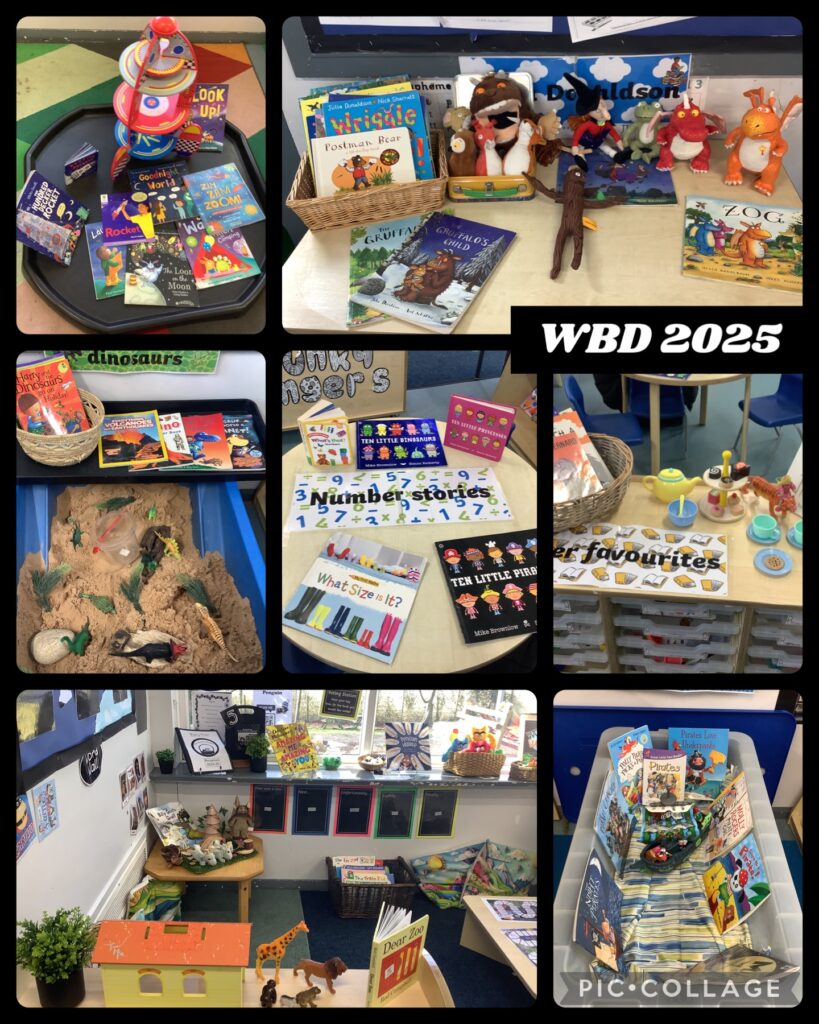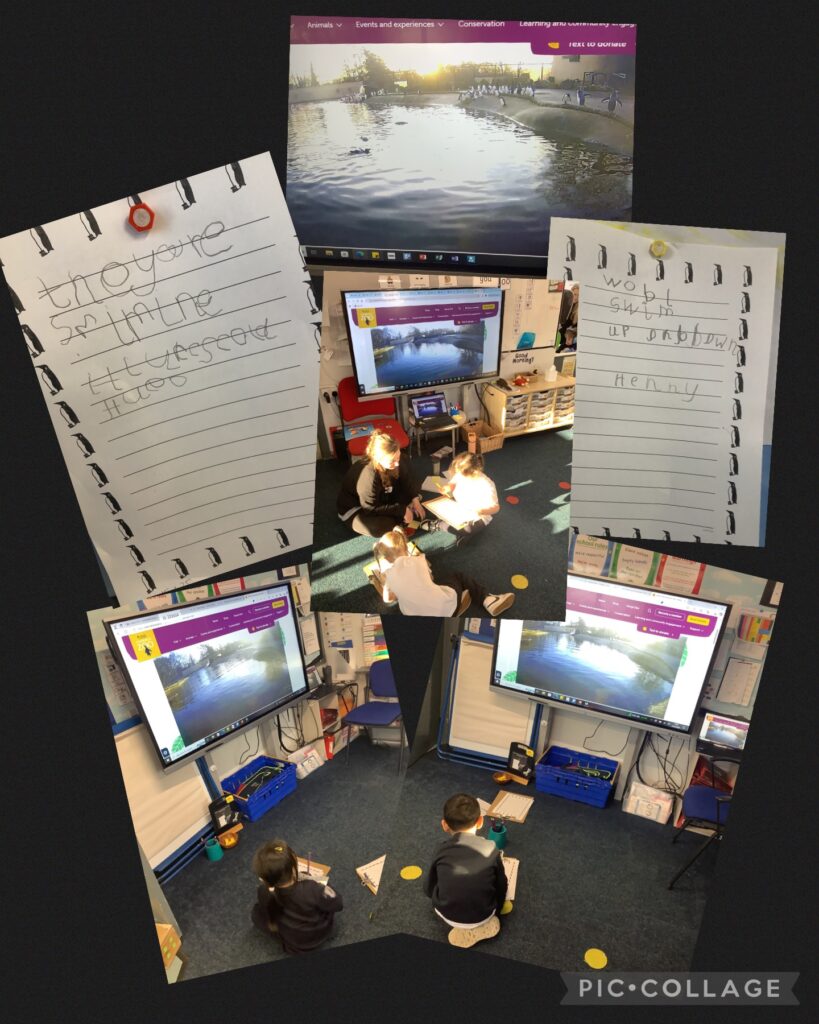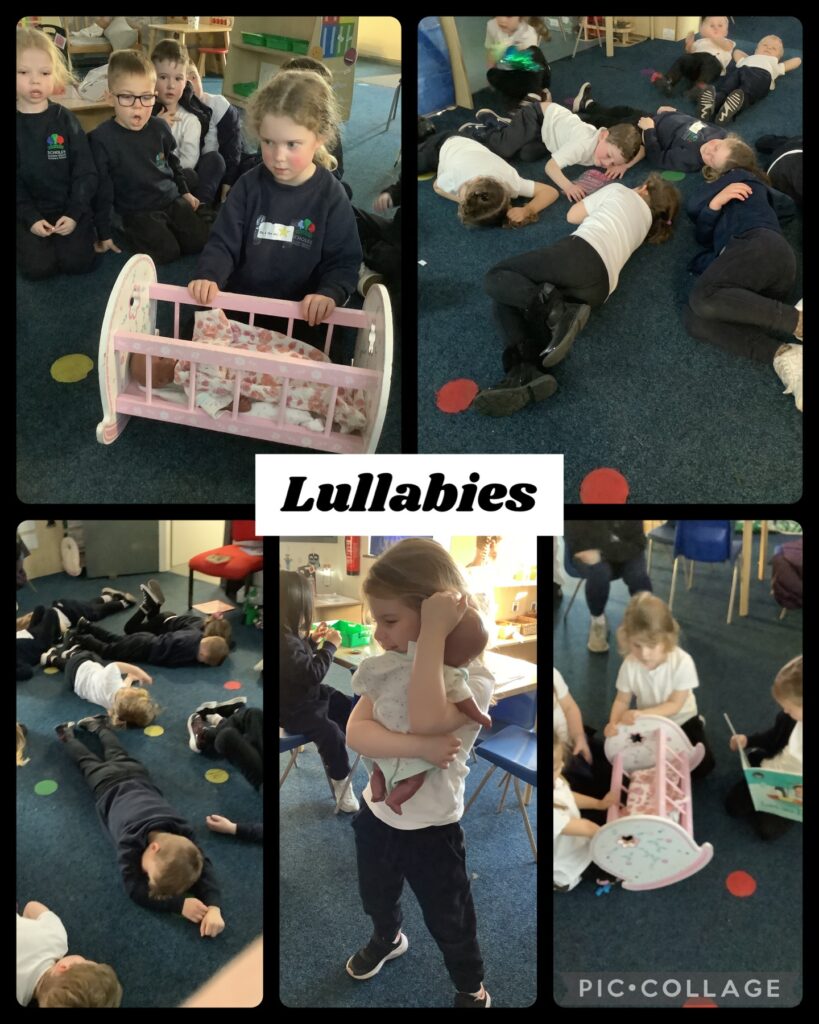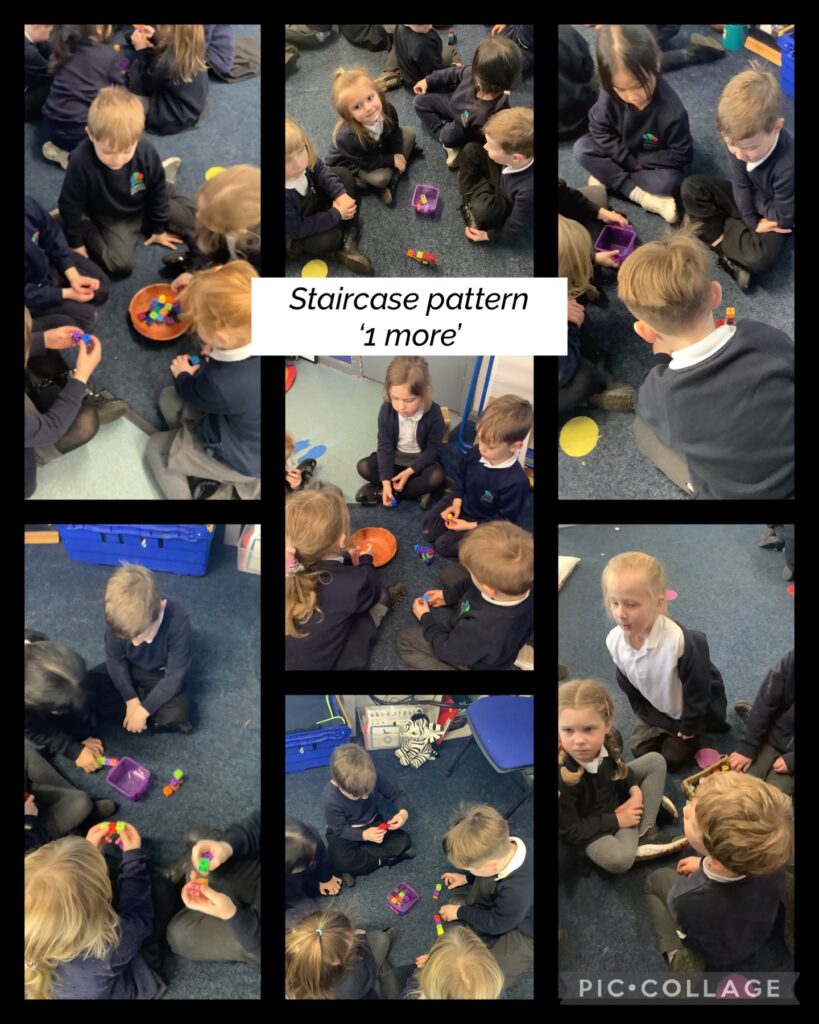We’ve been building up to the Easter half-term break with some egg-streamly egg-citing activities!
Rabbits Don’t Lay Eggs
We’ve been reading Rabbits Don’t Lay Eggs by Paula Metcalf.

Top tip for watching YouTube with your child: go to the settings cog along the play bar and turn off auto play – this avoids an inappropriate clip coming up automatically, and helps to discourage your child from passively watching clip after clip.
The story begins on a farm, with a rabbit named Rupert. All he wants is to be useful but unfortunately, he struggles to find anything he’s good at. Luckily, he soon finds an unexpected job on the farm!
Our ‘word of the week’ is creation – something that is made or created.
We also spotted some other adventurous words in the story:
Giggled to laugh lightly and repeatedly (a lot) in a silly way.
Glumly to look unhappy and disappointed.
In our writing, we transcribed the sentence Chicks are born on a farm. We also had a go at creating our own sentences, with spring pictures to inspire us!

Understanding the World; Easter
Through our literacy and RE learning, we’ve been discussing how we celebrate Easter and where our traditions come from.
We learnt that Easter is a Christian celebration and listened to the Easter story.
In provision, we’ve been exploring lots of Easter themed activities- we’ve loved going on egg hunts in the garden!


Maths
In Maths, we’ve been identifying the same and different attributes of various objects – e.g. colour, size, shape. We’ve been choosing ways to sort the objects.
We have also re-visited ways to identify ‘odd’ and ‘even’ numbers- we noticed that all of our even numbers are doubles!

In provision, we’ve been exploring doubles by putting the same number of eggs into 2 baskets and finding the total amount, we’ve been making repeating patterns using Easter objects and we’ve been playing a subtising/counting game! What a lot of maths skills!

Farmer Luke
On Thursday, we caught up with Farmer Luke via Zoom.
He started by showing us the tractor he uses to plant seeds and showed the children that these special tractors have tracks, not wheels, to protect the soil.
Luke showed us the different parts of the cultivator that work together to plant the grass seeds.
He asked the children to guess one of the plants- well done to Jenson, who knew it was a blackberry bush! Luke sends blackberries off in June/July to be turned into Ribena- yum!
Luke then answered some of our questions. We learnt lots, such as how long it takes for the grass to grow, where the tractors are kept and which jobs happened on the farm over winter.
We found out that winter is “less busy”. Lots of small jobs happen, such as pruning, farming the chickens, trimming edges and chopping up wood from fallen trees. Luke said “now it’s spring and things are growing, there’s lots more jobs to do!”

Bean Plants

Before we sent our bean plants home this week, we looked closely at the changes and how they had started to grow. If you decide to plant your bean at home, we’d love to see!

Poetry Picnic
Each week we will be learning a new poem. We will recite this poem each day. By saying the poem out loud, we can focus on the sounds and rhythm of each word or line. We talk to the children about how this can help us become better readers. This week’s poem is called A Little Seed.

We talk about how a poem sometimes has rhyming words and sometimes doesn’t. Can your child tell you the rhyming words in this week’s poem? We also talk about how a poem can have a fast rhythm or a slow rhythm.
We always look at two words in the poem and share the definition. This week, we looked at the following words.
sow – plant (seed) by scattering or putting in soil
shower – a short period (time) of rain
click here to watch Reception recite this week’s poem!
Egg rolling competition!
We finished the week with our egg rolling competition. We saw super- creative decorated eggs- thank you for your amazing efforts. Well done to our winners, whose eggs rolled their way to victory!

Home learning
Can you write a diary about your half term? A sentence a day would be fantastic! Please bring your diary in to share when we return to school.
Writing reminder…
Remember, it is okay for things to be spelt phonetically. It is important your child grows into an independent learner. Encouraging your child to write the words as they sound rather than always spelling correctly is important. It encourages your child to use their own skills – rather than copy from an adult.
It is important you do not let your child simply copy your writing. They need to use their phonics skills to write. Here is an example of a child’s writing in Reception.
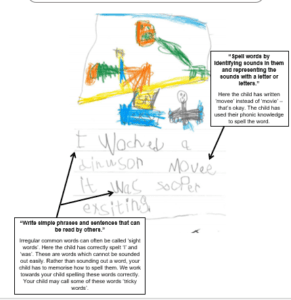
Final message and getting ready for year one!
On your return to school on the 22 April, we’ll be entering the final full term of Reception. The first step of the transition towards year one, is getting the children ready to come into school independently.
To support us with this, we are asking that children enter the classroom/cloakroom on their own from 22 April. We know a few children have started to do this already, which is great to see!
We encourage you to wave goodbye at the waving window and our door is always open for you to continue to pop in for a chat, if needed.
Thank you for your support.
We wish you all a lovely half-term break- see you in 2 weeks!

Reminders and Dates
SWIMMING DATES- Summer 1

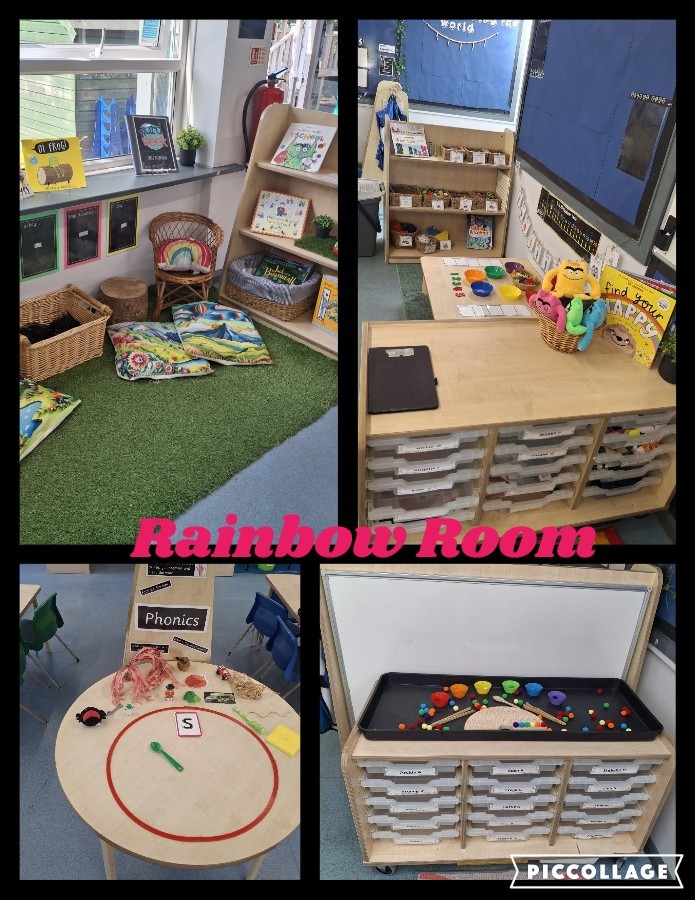
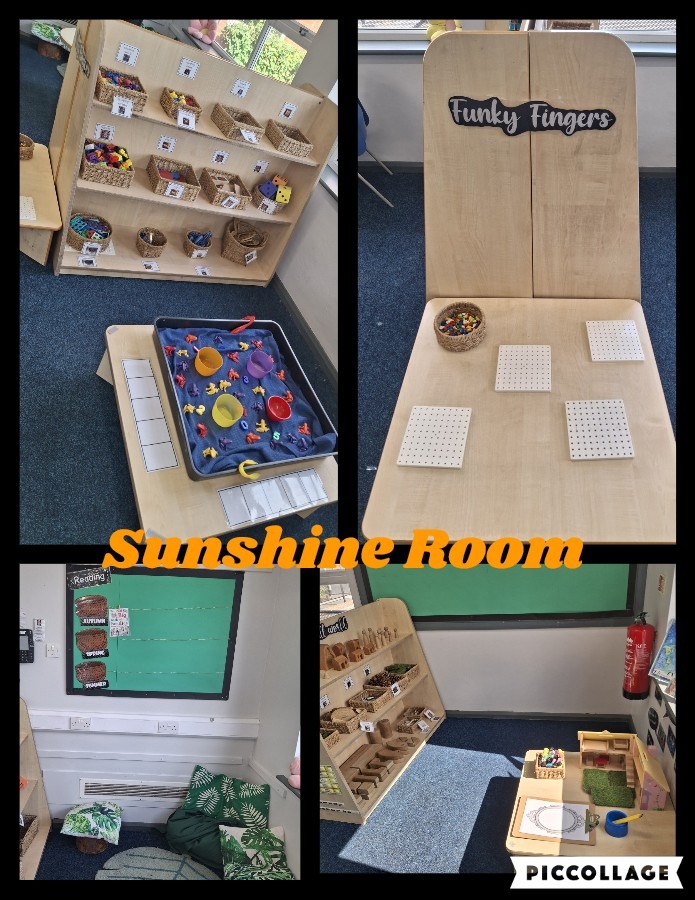
































 Top tip for watching YouTube with your child: go to the settings cog along the play bar and turn off auto play – this avoids an inappropriate clip coming up automatically, and helps to discourage your child from passively watching clip after clip.
Top tip for watching YouTube with your child: go to the settings cog along the play bar and turn off auto play – this avoids an inappropriate clip coming up automatically, and helps to discourage your child from passively watching clip after clip.


























